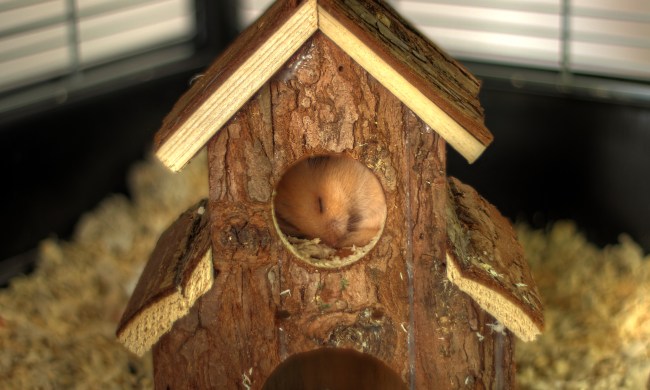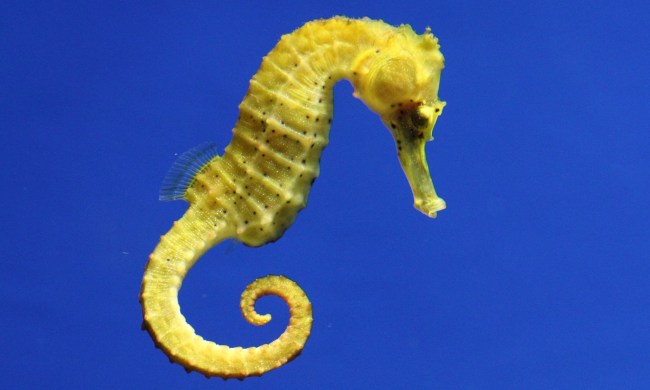There's a reason hamsters make such a good first pet — actually a few. They're funny, cute, good with kids, and relatively easy to care for. But that doesn't mean you won't put in a bit of work. Between cage cleaning, feeding, exercise, and hand training, you may find yourself overwhelmed those first few weeks. Don't look for the refund button. Instead, go through these easy steps to tackle your new endeavor. Here's how to take care of a hamster.
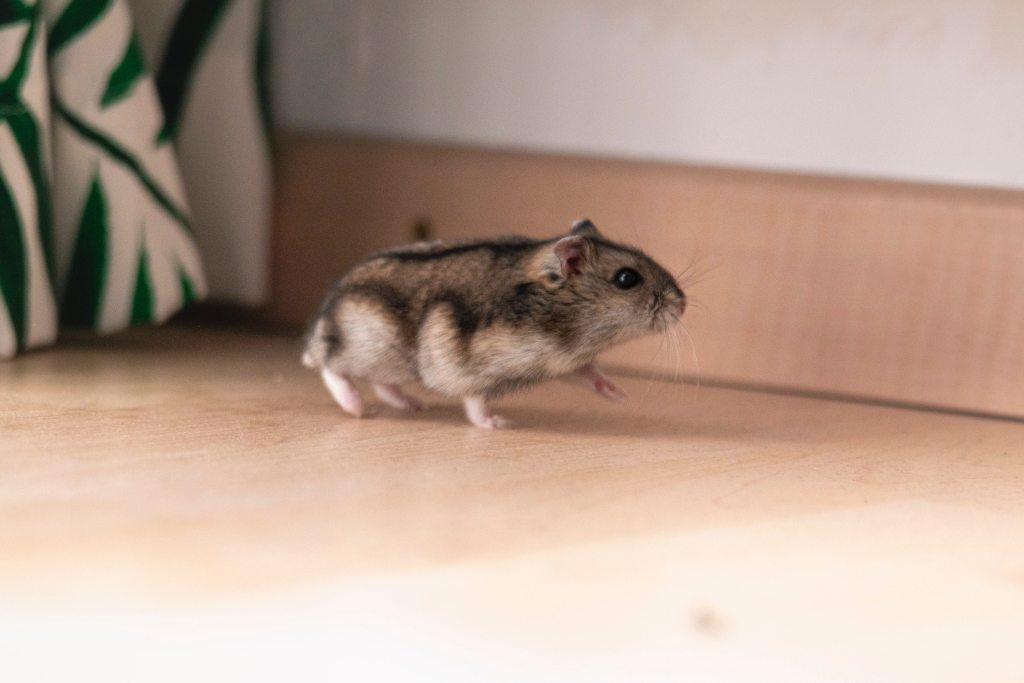
Is it easy to take care of a hamster?
Well, yes and no. You will put much less time and money into taking care of your small pet than you would a large dog. But you still need to attend to their needs every day. Your standard care checklist includes daily feeding, water changes, and handling. That’s right, you need to bond with your hamster so they get used to you (and keep that going by playing with them every day).
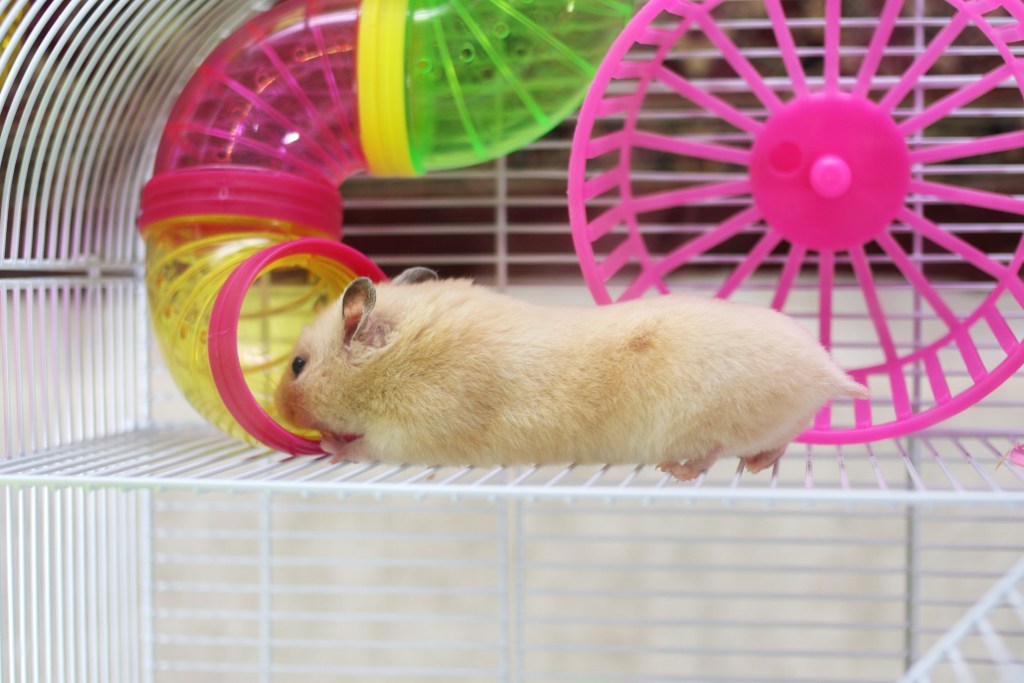
Do hamsters like to be held?
Your hamster will love cuddles, provided you start early in life and consistently pet them. Remember, hamsters, like other mammals, use their sense of smell, and you can begin the familiarization process by standing near the cage and talking to them if they're skittish. These animals become aggressive if left untamed, so frequent handling needs to be your priority.
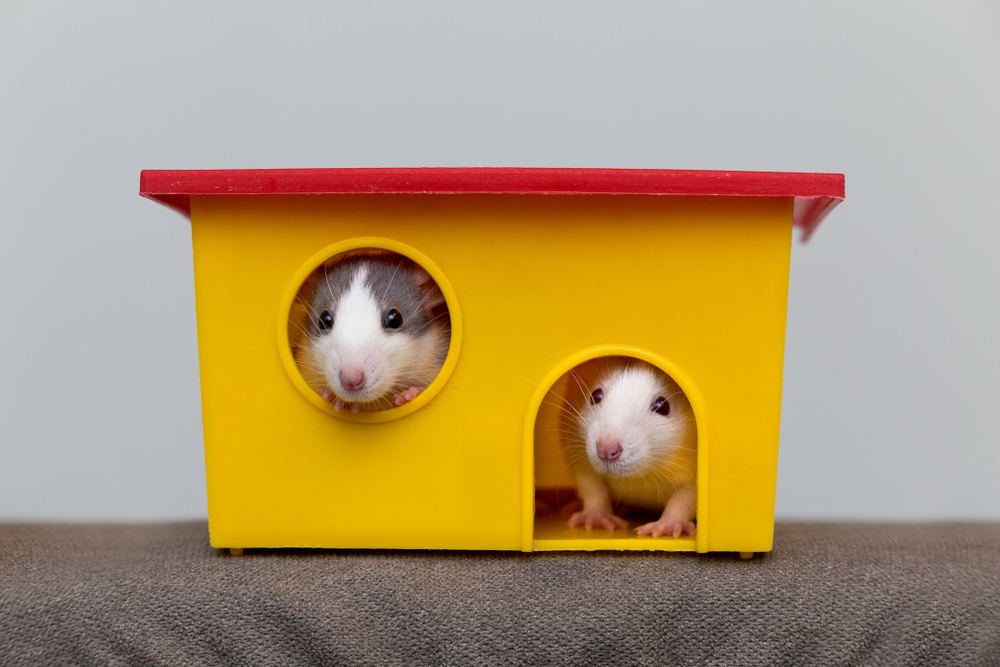
How do I tell if my hamster is happy?
You might instinctively know how to determine your canine or feline's mood but feel completely out of your depth when it comes to small pet feelings. The first step is to get your pet used to you and to learn their individual personality.
But there are a few things you can look for across the board even if you don't yet know your small pet well: a healthy appetite, regular grooming, ample playtime, and consistent sleep schedule all show that your hamster is doing well. Lastly, note signs that they're comfortable with you, as well, like eagerly approaching humans and seeking out attention — your hamster can even learn their name with time.
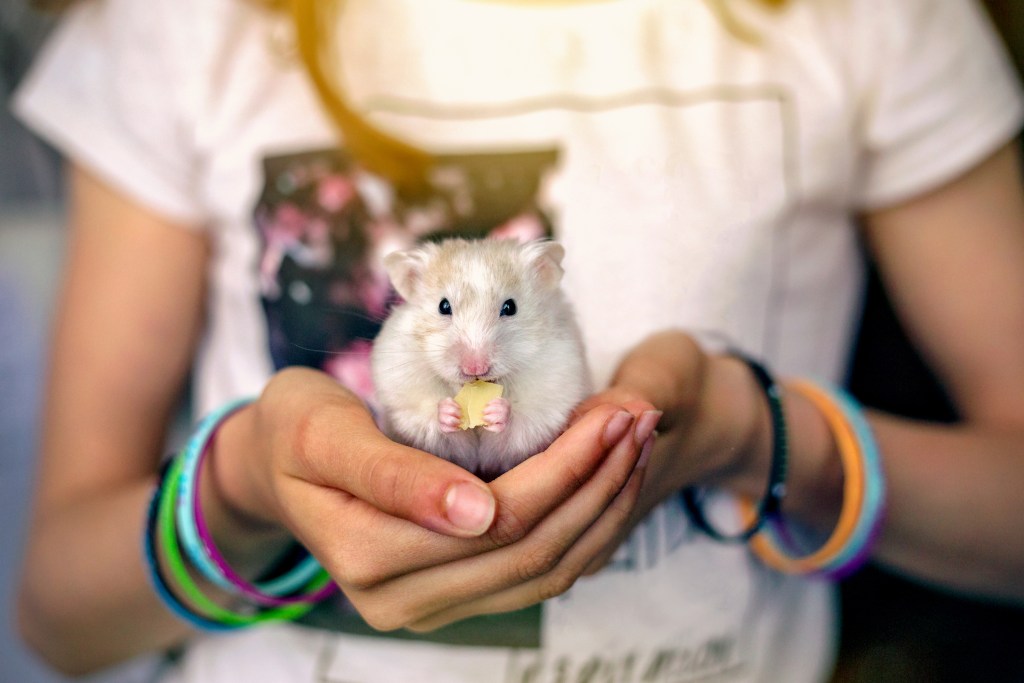
Do's and don’ts with hamsters
Step 1: Do get a hand-raised animal.
Holding your tiny rodent every day won’t do much good if they already have aggressive tendencies. Look for a respectable breeder who has carefully raised them for the first eight weeks of their life. Then, you’ll work on your own training.
Step 2: Don’t leave your hamster for long periods.
During the day while you work, they are mostly sleeping, so you're good there. But no hamster should be unattended for a full day. It’s easy to get someone to drop in to feed and pet your animal for a few minutes when you head out of town.
Step 3: Do clean the cage often.
Trust us, these little critters make a big mess for their size, and you’ll need to stay diligent about cleaning the cage long after the appeal wears off (although maybe there’s no appeal to scooping poop). Pick a day that becomes "cleaning day" and make sure you replace the bedding every week.
Step 4: Don’t use harsh chemicals in the cleaning process.
Even if you wash their belongings afterward, they're very sensitive to smells, including bleach and other household products. You can invest in something pet safe, but regular soap works just fine (make sure it’s unscented).
Step 5: Do get them lots of toys.
Hamsters are nocturnal, so they need something to do after you hit the hay. Try to fill their home with a variety of toys, some for chewing, others for climbing, a wheel for exercise, and a little tubing to explore.
Step 6: Don’t get a hamster ball.
Many hamster balls have caused injuries, so think twice before you bring one home. If you decide you need one, research thoroughly to get the right size and clean it after every use. Alternatively, invest in a pen that can give them the same opportunity to run around outside their nest every so often.
Step 7: Do set up a strict feeding schedule.
It’s best if your hamster knows when to expect food, and a daily feeding time will help you remember to pay your pet a visit. Feed while they're awake, so once at night and once in the early morning works really well. You’ll probably catch them snoozing if you attempt to give them a lunch midday.
Step 8: Don’t give them too many treats.
We love treating our pets, and they love it when we do. Hamsters eat bugs, which they will enjoy on special occasions (always purchase these from the pet store since insects from outside might have diseases). If you’re a bit squeamish, stick with fresh fruit as a snack.
The biggest tip of all: Try to incorporate your pet into your everyday routine. That way, your responsibilities feel like a normal part of your day akin to brushing your teeth. Daily handling also cues you into any problems they might experience. You’ll be familiar with their eating and bathroom habits and therefore able to spot issues. Anytime things change drastically, it means to call the vet.


